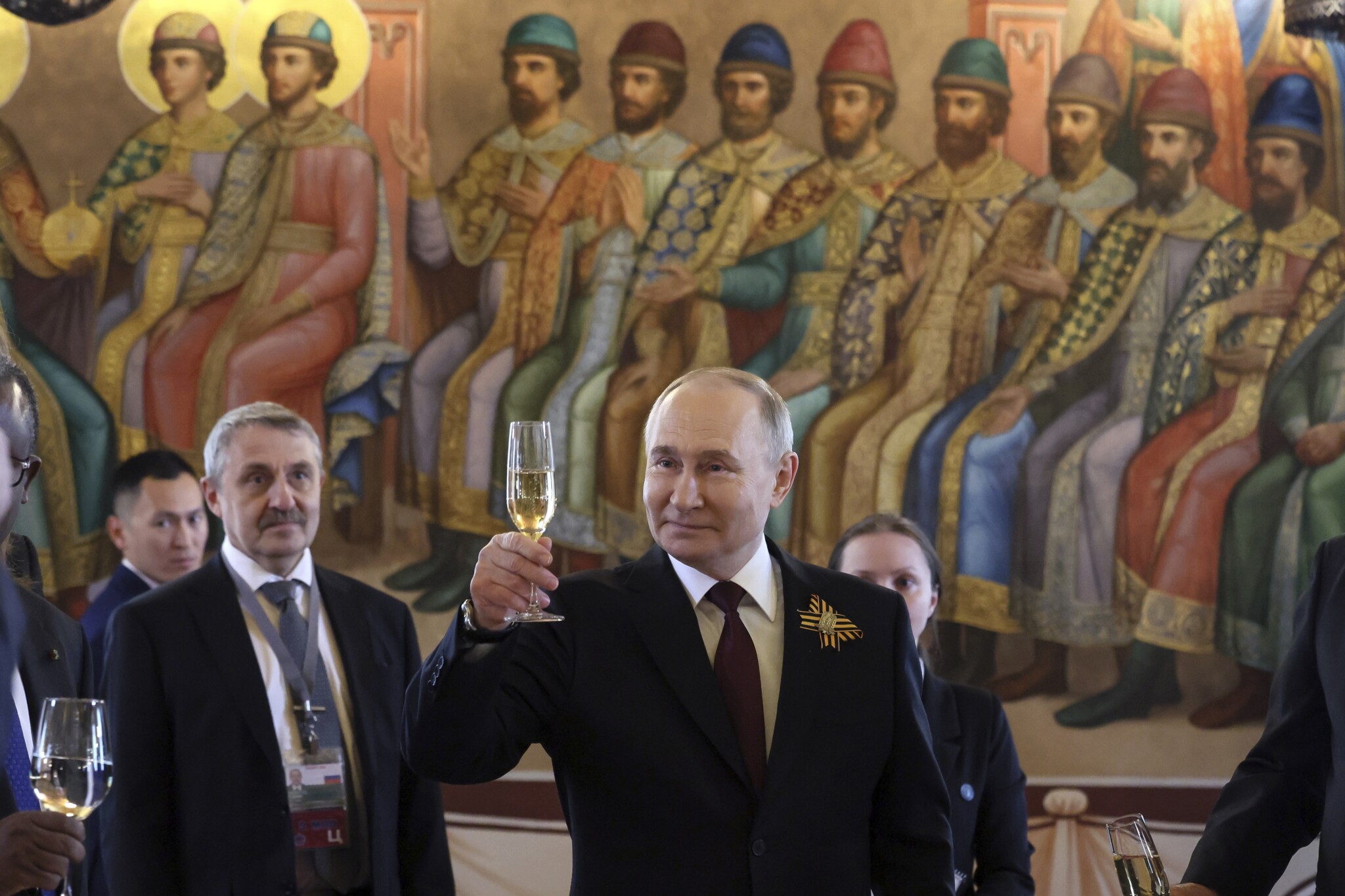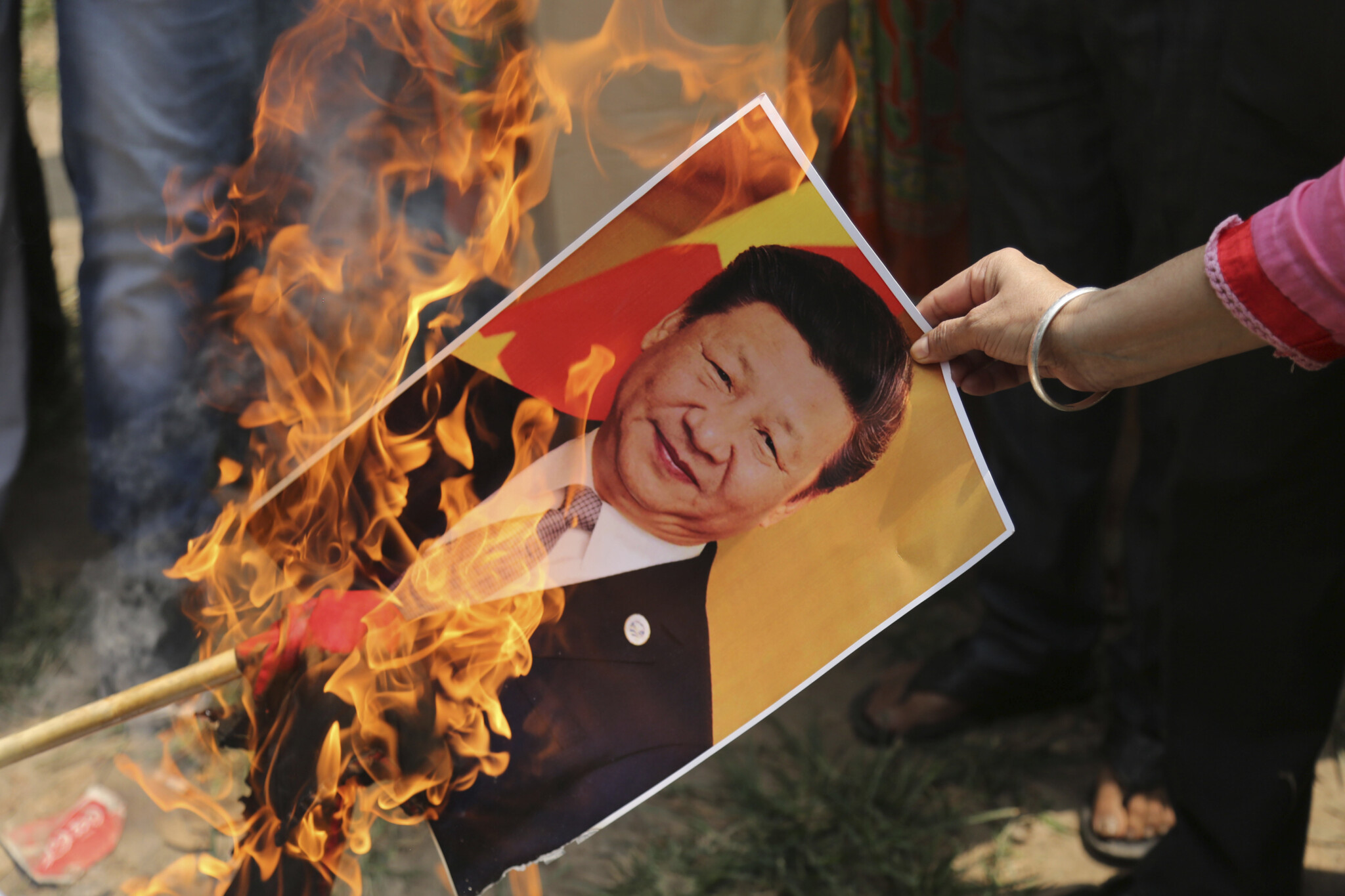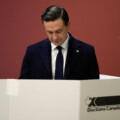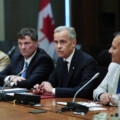In this week’s Hub book review, Patrick Luciani examines Autocracy, Inc.: The Dictators Who Want to Run the World by Anne Applebaum (Doubleday, 2024), in which she argues that autocrats across the world are being emboldened as the West fails to effectively fight back.
The last two weeks of July were extraordinary in American history. Aside from Biden stepping away from a second term, Democrats are rallying behind a leader with the political sophistication of a college sophomore. Her appeal is that she’s a younger Democrat. That might not last when Americans find out she’s a California Democrat.
For a moment, it looked as if Trump would be more conciliatory and less of a buffoon after the attempt on his life—no such luck. His long, rambling speech at the GOP convention only confirmed the old Trump is back, unfocused and undisciplined.
Before Biden’s forced resignation, historian Sir Niall Ferguson said America resembled the decaying Soviet Union of the 1970s and 1980s, a country run by old, sick, tired men. However, the truth is that American international leadership has been running on empty for a long time now. And America’s enemies are paying attention. It’s doubtful that Putin would have invaded Ukraine if the Biden administration had shown more resolve to stop him.
These thoughts came to mind while reading Pulitzer Prize winner Anne Applebaum’s recent book Autocracy, Inc.: The Dictators Who Want to Run the World.
Applebaum is clear that China and Russia are determined to bring down the rules-based liberal world order established after 1945 and replace it with a new multipolar world. They aren’t working alone. For example, President Nicolas Maduro in Venezuela—himself hanging dubiously on to power following an election overshadowed by allegations of overwhelming fraud—is laundering drug money to support Hezbollah’s war against Israel, while autocratic leaders in Iran, Syria, and North Korea use social media and financial corruption to help each other’s kleptocracies undermine liberal democracies worldwide.
The Western response has been generally anemic. Gone are the intellectual and policy giants of the past who understood the stakes—President Reagan had George Schultz, James Baker served under George H.W. Bush, and Henry Kissinger guided Richard Nixon. Under Biden, Secretary of State Antony Blinken seems outmatched when confronting his Russian and Chinese counterparts.
Coincidence or not, Russian and Chinese fighter bombers tested U.S. airspace near Alaska in recent weeks. In the free world’s capital, it didn’t help that the Israeli prime minister was publicly snubbed, as both the president and vice president avoided being seen with Netanyahu during his recent visit to Washington. At the same time, Iranian-backed Palestinian protesters burned the American flag and desecrated Washington monuments.
In a possible second term as president, Donald Trump relies on no one and can hardly be trusted to push too hard against illiberal leaders. He’s always had a fondness for autocrats, including Viktor Orbán of Hungry and Kim Jong Un of North Korea. Trump would rather sell condos to oligarchs than shut them down. Trump’s VP pick isn’t any better. JD Vance is more than willing to sacrifice Ukraine to Putin. Perhaps the most outrageous episode in American foreign policy history was President Trump siding with Vladimir Putin against his security intelligence team in Helsinki in 2018.

Russian President Vladimir Putin toasts in the Palace of the Facets at the Kremlin in Moscow, Russia, May 9, 2024. Mikhail Metzel, Sputnik, Kremlin Pool Photo via AP.
Against this loose network of autocrats, Applebaum fears that the West is making a big mistake in fighting the propaganda war through fact-checking or exposing rumours and bringing the truth to light. That process is too slow and inefficient to be of any use. Her solution is to expose Moscow and Beijing’s propaganda campaigns before they begin. Fair enough, but couldn’t we exhaust our enemy’s resources with our own propaganda war?
The book argues against the naive idea that a free market of political ideas will win the day in persuading citizens in autocratic countries, or that trade will bring stability and peace between adversaries. After the invasion of Ukraine, Germany realized it had made a grave error in relying on Russian gas to drive its economy, hoping to pull Russia closer to Europe. Canada, shamefully, has declined to use our resources to help our ally out of this predicament.
The same can be said of China—allowing it to join the WTO in 2001 with the intention that trade would encourage more democracy was a huge own goal. The result was a stronger communist state to challenge the West. Maduro is now enticing Western investment to save his oil and gas industry. If allowed, it would strengthen an enemy and discourage real democratic reform. Democracies must fight their own business leaders who are more than willing to make money in autocratic countries.
Applebaum concludes that we no longer live in a liberal international order. That dream died with the rise of populism, protectionism, and nativism, along with the old-fashioned lust for power. The plan now is to accept the world as it is, not as we want it to be, and to admit that protecting liberal democracies at home is more important than trying to change the world. If the book has a weakness, it’s the lack of attention to left-leaning autocrats, including leaders in Brazil and South Africa, who are intent on siding with the enemies of the West and showing deference to Russia and China.
Autocracy, Inc. is an important book that reminds us that the West is in a hot and cold war with a loose alliance of its anti-democratic enemies. They have declared an economic and propaganda war on the West, and the only option is to fight back hard. We know what Trump would do; we aren’t sure about a Harris administration, but if Kamala Harris keeps pushing Israel for a cease-fire before the job of defeating Hamas, she’ll be making the autocrats in Tehran happy.









